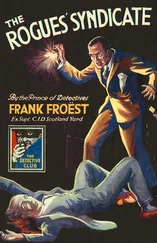'A trend? No. What we call history is only a passing moment in time. Sure, nature is currently experimenting with complexity, but who's to say that it won't lead to an evolutionary dead end? We're vastly overestimating our own importance if we see ourselves at the forefront of any natural trend. Think of the tree of life – that diagram with branches sprouting off in all directions. Where would you see humanity on it, Sal? As a main branch or one of its offshoots?'
'Goes without saying. A main branch.'
'That's what I expected. It's a typically human way of seeing things. If various offshoots of a genus die out, we tend to assume that the surviving offshoot is the central branch. Why? Well, because – for the moment, at any rate – it's still there. But what if it's just an unimportant side branch that's managed to survive a little longer than the rest? Humans are the only remaining bud on an evolutionary branch that once flourished. We're the leftovers from a biological development whose other offshoots withered and died, the last survivors of an experiment named Homo. Homo Australopithecus : extinct. Homo habilis : extinct. Homo sapiens neanderthalensis : extinct. Homo sapiens sapiens : still extant. We may have mastered the Earth for the moment, but evolutionary parvenus shouldn't confuse ascendancy with inherent superiority or long-term survival. We could disappear from this planet faster than we'd like to think.'
'Maybe you're right,' said Peak. 'But you're forgetting one thing. This one surviving species is the only species with highly developed consciousness.'
'Sure. But consider the development of consciousness within the context of nature as a whole. Can you really see any overall progress or general trend? Eighty per cent of all multicellular organisms have been far more successful in evolutionary terms than mankind, without ever being part of this supposed trend towards neural complexity. The fact that we're endowed with intelligence and consciousness is only evidence of progress from our particular viewpoint. We're just some bizarre evolutionary sideshow that's arisen against all the odds. There's only one thing that the human species has contributed to the ecosystem of this planet, and that's a whole lot of trouble.'
'Well, I still think humans are behind all this,' Vanderbilt was saying at the neighbouring table. 'But, OK, I'm prepared to be proven wrong. If it turns out that we're not up against a human enemy, I'll be launching an operation in yrr surveillance instead. Don't you worry! The CIA will trail those unicellular slimeballs until we know exactly how their minds work and what they're planning next.'
He was standing with Delaware and Anawak, surrounded by soldiers and crew.
'Dream on,' said Delaware. 'Not even the CIA could manage that.'
'What would you know about it, honey?' scoffed Vanderbilt. 'If you're patient enough, you can slip inside any mind you choose – even if it belongs to an amoeba. It's just a question of time.'
'No, it's a question of being able to see things objectively,' said Anawak. 'And that presupposes the ability to adopt an objective point of view.'
'We can do that. We're intelligent, civilised beings.'
'You might be intelligent, Jack, but you're not capable of viewing nature objectively.'
'In fact, your viewpoint is as subjective and restricted as any other animal's,' said Delaware.
'Which particular animal did you have in mind?' Vanderbilt chuckled. 'A walrus?'
Anawak gave a short laugh. 'I'm serious, Jack. We're closer to nature than we think.'
'Well, I'm not. I'm a city boy. Never did like the country. Same as my old man.'
'Makes no difference,' said Delaware. 'Think of how we feel about snakes, for example. We admire them as much as we fear them. It's the same with sharks. There are all kinds of shark divinities. Man's emotional reliance on other forms of life is inborn. It might even be genetic.'
'You're talking about tribespeople. I'm talking about city folk.'
'OK.' Anawak thought for a moment. 'Have you got any phobias? Anything you really don't like?'
'Well, I wouldn't call it a phobia, exactly…' Vanderbilt trailed off.
'An aversion, then?'
'Yes.'
To what?'
Just the usual. I don't like spiders.'
'Why?'
'Well, because…' Vanderbilt shrugged. 'They're disgusting. You find them disgusting, don't you?'
'Not really, but that's not the point. The point is, most phobias still plaguing civilised society derive from things that posed a threat to humanity in the past – before we lived in cities. Walls of rock that cave in on us, storms, floods, dark water, snakes, dogs, spiders. Why don't we develop phobias of guns, live wires, flick knives, cars, explosives and electric sockets? They're far more dangerous. But it's engrained in our minds: beware of snake-like creatures and many-legged insects.'
'The human brain developed in a natural, not a technological environment,' said Delaware. 'The evolution of our minds took place over a period of two million years, when we were living in intimate contact with our natural surroundings. It's even possible that the prehistoric rules of survival are inscribed in our genes. Either way, only a tiny fragment of our evolution took place during the so-called civilised era. Do you really think that just because your father and your father's father grew up in cities that all the formative information in your brain will have disappeared for good? Why are we afraid of small creatures that slither through the grass? Why don't you like spiders? It's because once upon a time fears like those saved our lives. Because individuals who were more susceptible to fear stayed out of danger and created more offspring. That's why, Jack. Do you see?'
Vanderbilt looked from Delaware to Anawak. 'But what's that got to do with the yrr?' he asked.
'It's to do with the fact that they might look like spiders,' retorted Anawak. 'How would that make you feel? So don't try to tell us that you're objective. If we can't control our aversion to the sight of the yrr- or to jelly, amoebas and toxic crabs or whatever – then we'll never find out how their minds work. We won't be able to. We'll only be intent on destroying them because they're not the same as us – and we don't want them creeping into our caves to steal our children…'
JOHANSON HAD EXTRICATED himself from the main group and was standing in the shadows, trying to remember what had happened the previous night. Li came over to him and handed him a glass. Red wine. 'I thought this was a soft-drinks-only expedition,' said Johanson, surprised.
'It is.' She clinked glasses with him. 'But there's no point in being dogmatic. Besides, I like to cater to the wishes of my guests.'
Johanson took a sip. 'Tell me, General,' he said, 'what kind of a person are you?'
'Call me Jude. "General" is only for people who have to salute me.'
'Well, I can't work you out.'
'Why's that?'
'I don't trust you.'
Li smiled in amusement and took a sip. 'The feeling's mutual, Sigur. What happened to you last night? Don't tell me you still can't remember.'
'My mind's blank.'
'What were you doing on the hangar deck? It was the middle of the night.'
'Just relaxing.'
'And before that you did a bit of relaxing with Oliviera.'
'When you're as busy as we are, it's important to relax.'
'Hmm.' Li stared past him towards the water. 'What were you talking about?'
'Work.'
'Is that all?'
Johanson looked at her. 'What do you want, Jude?'
'To beat this crisis. And you?'
'Oh, ditto,' said Johanson, 'but I'm not sure I want to beat it in the same way as you. What are you hoping will be left when this is over?'
'The values of our society.'
'Human society? Or American society?'
Читать дальше












